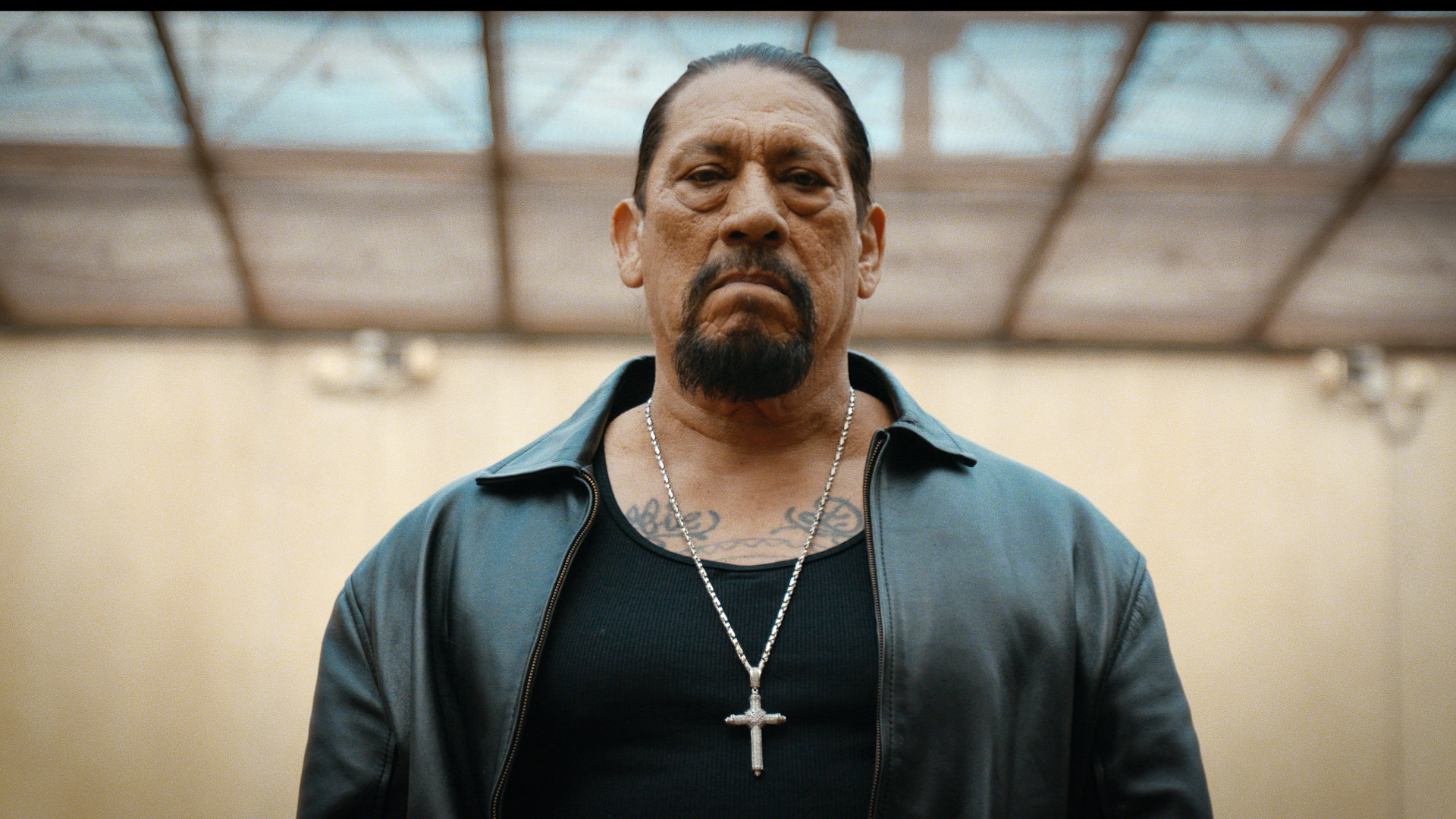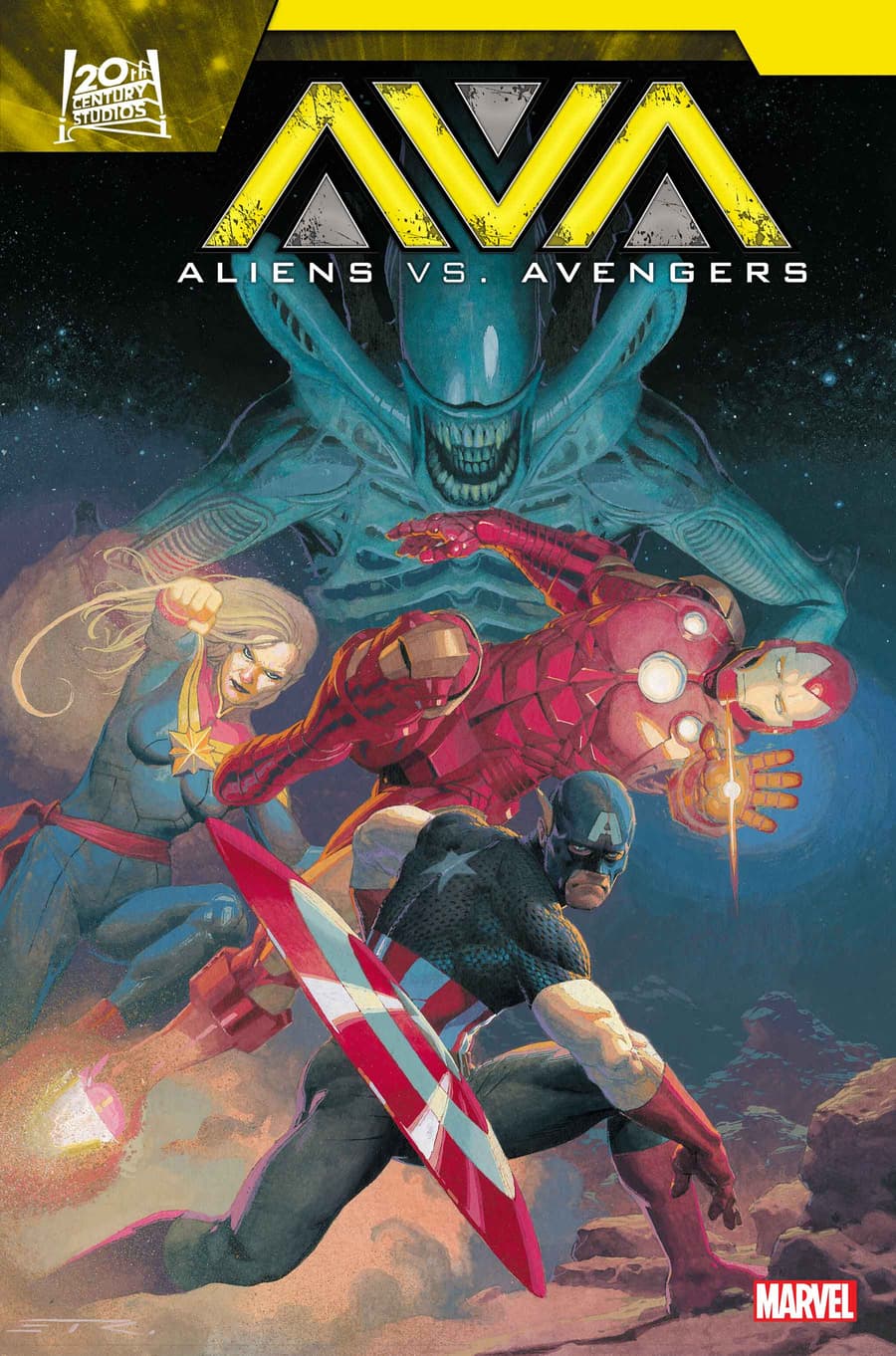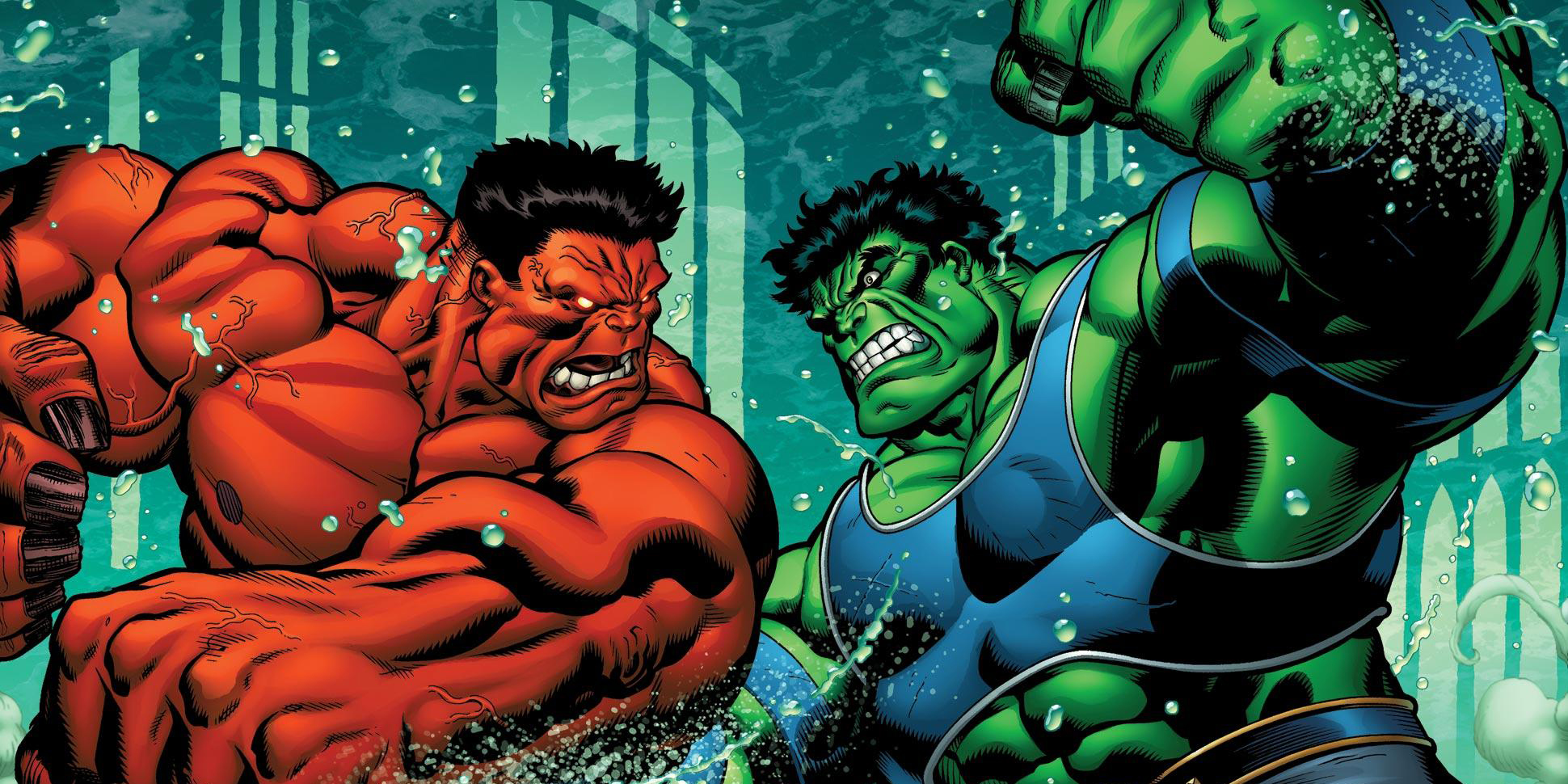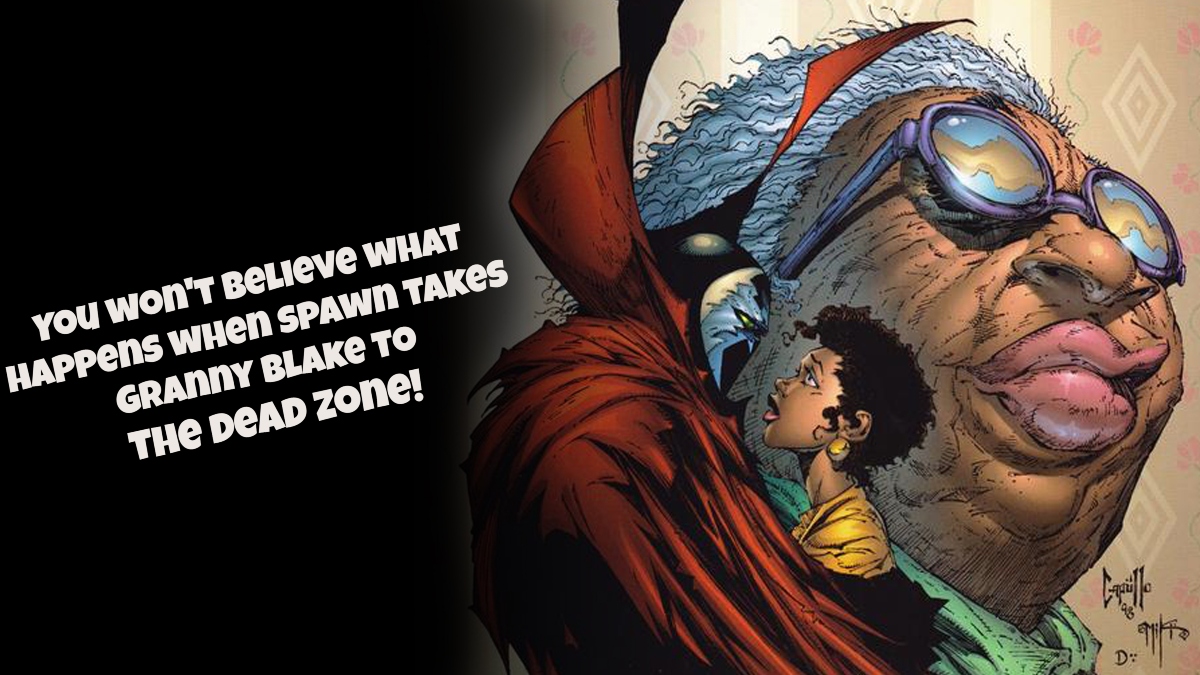Last week was the release of the documentary Inmate #1: The Rise of Danny Trejo from Universal Pictures. If you haven’t had the opportunity to see it, I highly recommend checking it out on VOD. Although we all know Danny Trejo as Machete as well as many other bad-ass characters, his life story is an inspiring tale that we should all take a moment to examine.
Director Brett Harvey did a fantastic job of gathering some of Trejos’s close friends and family to help tell his story. A story that begins like so many of a young Latino male that gets caught up in a vicious circle of drugs and crime. But in a moment where his life was almost cut short, he decides to change his life for the better. After many years in and out of jail, he then dedicates his life to counseling others in need of desperate help. All of this before a single movie role.
One of those close friends that are featured in the film is actor Donal Logue, who you may know as Harvey Bullock on FOX’s Gotham. Along with being a long time friend to Trejo, he is also working on a book on Trejo’s life.
LRM Online had the opportunity to have a great conversation with Logue on his relationship with Trejo, his personality, and what we can take away from his experiences.
Inmate #1: The Rise of Danny Trejo is now available on VOD.
Read the full interview down below.
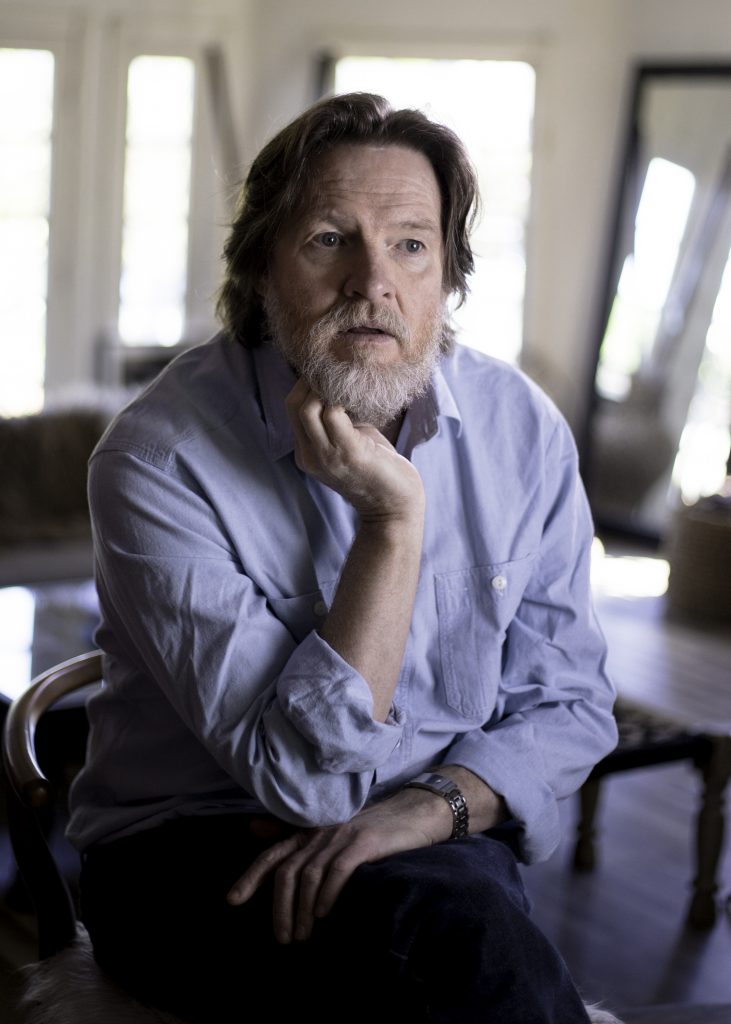
Emmanuel Gomez: What I want to start off with you is, how did that relationship with Danny Trejo start with you?
Donal Logue: Danny and I became really good friends in 1999, in Prince George, British Columbia, Canada, which was up near the Alaskan border. We were doing Reindeer Games. We were working on a movie together, and then he immediately just was like, “I got your back. I’m your guy.” And we bonded through recovery in drugs and alcohol. So we’ve been super, super tight ever since, for 21 years. I’m writing Danny’s book with Danny, of his life, his life story, for Simon & Schuster. So I spend all day, every day, with him, which is great. It’s been a blast.
But I’ve gotten to know more about Danny in the last year. It’s remarkable. We’ve really gone on a deep dive into his life, in a lot of the events that the documentary covers. But we have time and space to go really, really deep into more childhood, and family, and stuff. I feel like I could do a 72-hour-straight oral history on Danny Trejo at this point.
Emmanuel Gomez: Is there anything that you learned about him, that surprises you?
Donal Logue: Not that it surprises me, I’ll give you a good example, and of course, it’s not in the documentary. But I had to go over to his house to work on the book, and I had to run some errands first. I said I’d be over there in an hour and a half. Then I was heading up to his house, and my friend Jill called me and said, “Man, did you hear about your friend Danny Trejo?” And I was scared at first. I was like, “What happened?” He goes, “He’s all over the news. He saved a baby.”
I pulled up to Danny’s house and there was some news crews there and stuff. Danny had come across this pretty gnarly auto accident and saved this baby. And he knew because it didn’t surprise me that he called me and said, “Come on over, and an hour later, he was on the news all over the place, because he had run towards danger.
That’s something he always does. He really saved me in a moment that was really difficult. He saved this guy Skip’s life, from the back of a boat in Austin. God puts him in these places all the time, and he acts. He does it because he’s really motored by this beautiful belief that we’re on planet earth to help each other. That’s what we’re here for. He always says, “We’re on the Titanic looking for deck chairs. So all the petty squabbling is ridiculousness because we’re all in it together, and we’re here to help each other, and that’s it.”
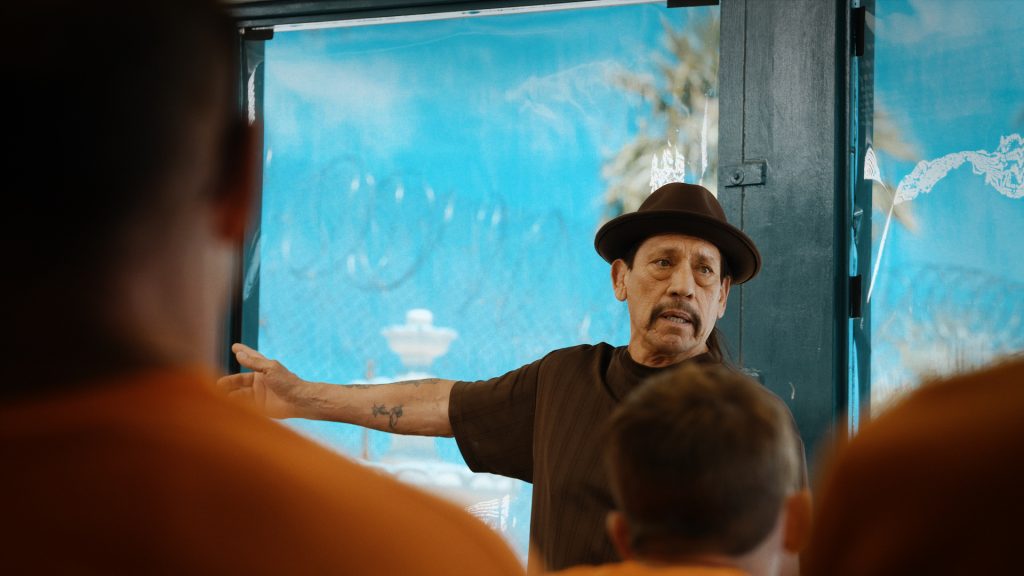
But no, I mean, I definitely know a lot of details that weren’t in the documentary, that I didn’t know before. And specifically, stuff about his upbringing and his childhood, and a lot more about his time in the prison system. It’s pretty frank. But I have to say that the documentary, I think, does a fantastic job of covering that territory, and talking to the people who have been around Danny, and critical in his life, like Mario and Craig and everyone. The more I know about him, the more I love the guy.
Emmanuel Gomez: Is there anything that didn’t make the documentary, that you would hope people find out about him?
Donal Logue: I mean, they will in the book. But yeah, there’s probably a couple hundred pages of it. One thing that is central to the book, and it’s mentioned in the documentary but we go into it in more depth, is his relationship with his Uncle Gilbert. His father had all these brothers. And the one who was the youngest, so in a way, he was closer to Danny’s age. He was more almost of a cousin than an uncle, Gilbert. He was really the first person who really gave Danny the time and attention that he was craving as a kid.
It just so happened if Gilbert had been a star athlete, Danny would’ve done what he did. But the fact that he was involved in drug dealing and robberies etc, that’s what Danny got into. Yeah, I think his first drug deal with Gilbert was when Danny was six years old. It’s just remarkable when you look back on that, and you see what his childhood was like. I would say this. You can read prison memoirs, and sometimes you’re left with this idea that I don’t know if this person is embellishing their level of stature in the prison, or this and that.
With Danny, what they say bonafides of being in prison, are indisputable. For as giving, and as loving, and as caring, and as much of the el Padrino that he’s become in a way, to the world, he was a scary character, and he grew up really hard. To see that shift in him, it’s remarkable. I mean, that’s why they made a documentary about him because his story is so incredible. But there are a lot of stories. I’m just trying to think of one without spoiling what will come out later.
The relationship with Gilbert was the primary relationship in his life, and Gilbert’s life and death. Gilbert was an unbelievably charismatic, really magnetic human being. You can see why Danny was so drawn to him and how in ways, he really set Danny up for life, for either good or bad. What they don’t really get into in the documentary is Danny’s relationship with his family and his children, and just how much of an amazing father he is.
Emmanuel Gomez: I want to go back a little bit to something you said, that one of the first times you met him on set, you guys really bonded through some of your guys’ past troubles. How does he talk about that? How does he approach that? I know that he had been a counselor.
Donal Logue: I’ll be frank about it. What happened was I met him in a meeting in the basement of a church, in Prince George on a brutally snowy night, in a small logging, mining, prison town. All of the people in the meeting that night, because I had just gotten up to Canada, were mostly First Nations men, Indigenous men, who here, we would call Native Americans. In Canada, they call them First Nations. I did a quick scan of the room, and I stopped on Danny’s face. I was like, “That’s weird. I know this guy.” What was strange was, of course, Danny’s face fit in with everyone else, right? And then I realized, “Yeah, of course, I know him. I know him the way millions of people know him. That’s Danny Trejo.”
In that room, he spoke about his journey through the prison system, and that prayer to God, “If I say your name every day, and stay clean and sober.” At that time, he wanted to die with dignity, if they were given the death penalty for the crime, for the prison riot. I was just so blown away. I didn’t know that about him. Obviously, it was 21 years ago, until I heard him. And then after that, we fell into speaking. So already, I knew the deeper nuts and bolts of his story. And that’s when he took me under his wing.
I mean, the craziest things have happened. I remember Danny was calling me incessantly about, “Get in touch with me, man. You got to call me.” I didn’t call him back. As time went on, this was in 2000, so 20 years ago. He said, “Look, I’m going to send the Mexicans to come and get you, homes.” We were joking. He was joking, but I didn’t call him back. Then he said, “Hey, God’s going to put you in my path.”
ALSO SEE: MICHAEL RABE TALKS ABOUT PLAYING THE TOUGH ROLE IN BIG DOGS [EXCLUSIVE INTERVIEW]
The next day, I was coming back from Santa Barbara, from this film festival, on a stormy day. I hydroplaned on the highway, and I got involved in this really terrible one-car crash and shutting down traffic on the highway and all this stuff. I saw this car just barely miss me, and concerned faces. I got out in the middle of the highway in five lanes of traffic. I was just like, “Am I dead? Am I alive?”
I saw someone step out of this car. Mind you, we are so far away from Los Angels. I look up and it’s Danny standing on the 101 in the rain, and I said, “Danny, I was just going to call you.” And he’s pointing at you, and he said, “I told you God was going to put you in my path.” I’ve always had this connection with Danny that defies normal logic if that makes sense.
He’s the friend that I turn to. He’s the uncle to my kids. I’m incredibly close with kids, especially Gilbert. I’m just one of many, where my family and my life has been taken in under his umbrella, including my children. We do that for each other. His son Gilbert spends way more of him time up at my ranch in Oregon that I do. He just loves it up. It just is such a gift to me, to be able to feel like that connection with Danny and his family continues through the younger generations.
Emmanuel Gomez: That’s an amazing story. What would you say is probably the best advice, or something that sticks out to you, that he’s given you?
Donal Logue: The number-one things is because Danny’s been through it. He’s been through it with his own children having struggles with drugs and alcohol, which is something a lot of parents can relate to. I certainly can. And financial fear, health scares. I mean, Danny had a double brain aneurism, and went to the Howard Sterns, and then flew to Rome to do a movie, and no one had any idea about it. And he’s always saying, “If you pray, why worry? And if you worry, why pray?” If you fill your heart and your mind and soul with faith, then you don’t have room anymore for fear. So anytime there are issues that come up in my life, or even your life, or whatever it is, it’s just that turning it over to God, having a belief in a higher power, a power greater than yourself.
A God of your understanding, not prescribing any one notion to anyone. It’s what really helps give you that strength to get through those times when you think that you don’t have enough strength face what you’re facing. He’s a messenger of faith. Of course, there’s tons of stuff where, if you get into beef with someone, road rage, whatever, he’s always just full of those kind of pithy things, like, “If he ain’t worth killing, he ain’t worth fighting. And if he ain’t worth fighting, then he ain’t worth worrying about. And if you’re not worried about it, what’s your problem? Get me a Coke from the fridge.”
I remember, now, this isn’t something he came up with, but there was one particular person I was really up with and mad at, probably for good reason at one point. And he’s like, “Look, resentment is a poison you take, hoping it kills the other person.”I know Danny didn’t write that, but he is a depository of incredibly good advice. But yeah, I love the adventures of Danny’s stories from his youth and those wild times. I mean, what I love about Danny is, and I think you can really relate to this, Emmanuel.
Danny’s come down to my hometown with me of El Centro, which is such a blast, to go back to my old high school and have Danny speak, where he’s kind of the king. So Danny was conceived during the Zoot Suit Riots. His father was a zoot suiter from 38th Street. To me, it makes complete and utter sense that, in this tumult, right? In this time where Mexican Americans, who, unfairly, were fighting in the World War II in disproportionate numbers, but were also being targeted at home. You know what I mean?
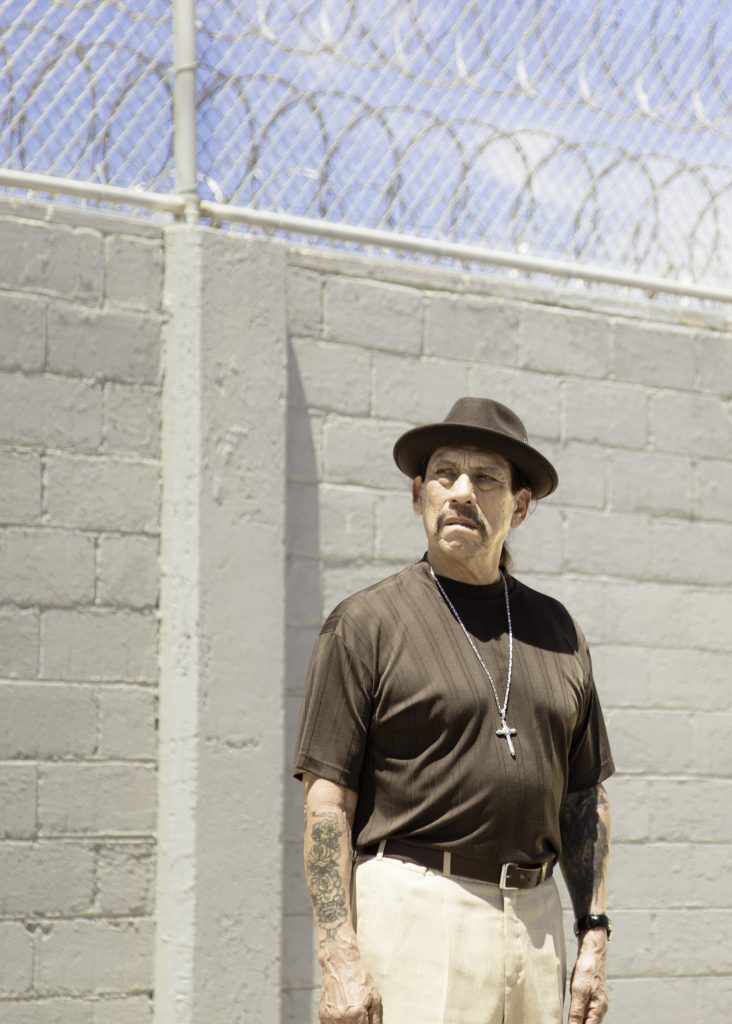
For not fitting in and stuff. That tension between the societies, and what happened in Sleepy Lagoon, and the Zoot Suit Riots, that Danny would be born right of that. That arguably, the most famous Chicano in history, that’s where he was the cauldron that he came from, and came up in Elysian Heights, and Lincoln Heights, and Echo Park, and Pacoima, Orinda, San Fernando.
What I love is, the other day, we went down to a food bank in the 10th district, which is near Korea Town. And to drive from Danny’s house, and drive to this thing … and it’s so typical of Danny. Every time I’m with him, it’s like, “Come on, we’re taking diapers to homeless mothers downtown,” or, “We’re going to a food bank or a food drive,” or, “We’re donating food here. We’re going to go speak to a halfway house of teens.” He’ll go by a dog pound and walk dogs, just because they’re doing time, and to give them some love. I didn’t even that, that was a thing you could do, right? So we’re driving down to this place, and of course, having had working on the book with him, I was so aware of everything.
I just thought, “My God, all of these incredibly dramatic events in his life all happened. He still lives in the San Fernando Valley. And everything in the last 76 years,” it’s like, as you drive down Interstate 5, which literally was built over his grandma and grandpa’s house, in Burbank, because their house was taken by eminent domain to build Interstate 5. But you can drive down the 5, and you can throw a pebble on either side of it. And you think about, “Oh, okay. This is where he got into that shit with that sailer in the parking lot there and did three years. This is where he lived with his second wife. The Interstate 5 and 70 are like this necklace in LA, that drape around the neck of his life’s events, both good and both harrowing.”
The whole time, he just, out loud, says a prayer for 25 minutes. That’s what he does every day. So he’ll make sure that he gets in the name of you, me, everybody, his kids, all of his friends, all of their kids, every dog. He’s just like, “Thank you, God, for this. Thank you, God, for that. Thank you for Trejo’s Tacos. Thank you for providing employment for people through Trejo’s Tacos.” I love it because if we all lived like Danny, the world would be a better place.
Emmanuel Gomez: Definitely.
Donal Logue: What people don’t really realize is, that when Danny got out of jail in 1969, he never worked in the movie industry until 1985. So he had 16 years where he wasn’t the Danny Trejo working on films and stuff. He had this huge chunk of time where all he was doing was really dedicated work as a drug counselor and working at methadone clinics, etc., and helping people get clean. It feels like, “Oh, Danny got out of prison and then wondered by a movie set on accident, and then this incredibly huge career happened.” That’s not really the case at all.
Emmanuel Gomez: Is Danny the type of person to reach out to an actor that maybe he sees onset, that he perceives in trouble?
Donal Logue: Hundred percent, and it’s so on point for you to ask that. Danny had met this kid in the mid-’80s, who was doing background work on films and television, right? And said that Danny should it, that there was this agency that specialized in hard guys. He spoke with this guy Dr. Door, who, at the time, had opened a string of methadone clinics, called Western Pacific Med Corp, that Danny worked for and with. He and Dr. Door talked about it, and Dr. Door was excited. He goes, “Danny, that could be a good place to find people who need help through our clinics.”
At the time, I think the film industry was much wilder. What you asked is exactly how Danny put it. He could see a lot of people who were really hurting. There’s something about him. Danny doesn’t walk around and proselytize. He doesn’t hold up a sign, but people know who he is and what he’s about. So many people who were struggling would just go, “Hey, man, I’m in trouble with this.” And he’d say, “Well, there’s a way out.” What he thinks about his film career is, he believes, and I believe as well, that it’s God-driven. All it really does is provide him a platform to spread his message wider, his message of recovery.
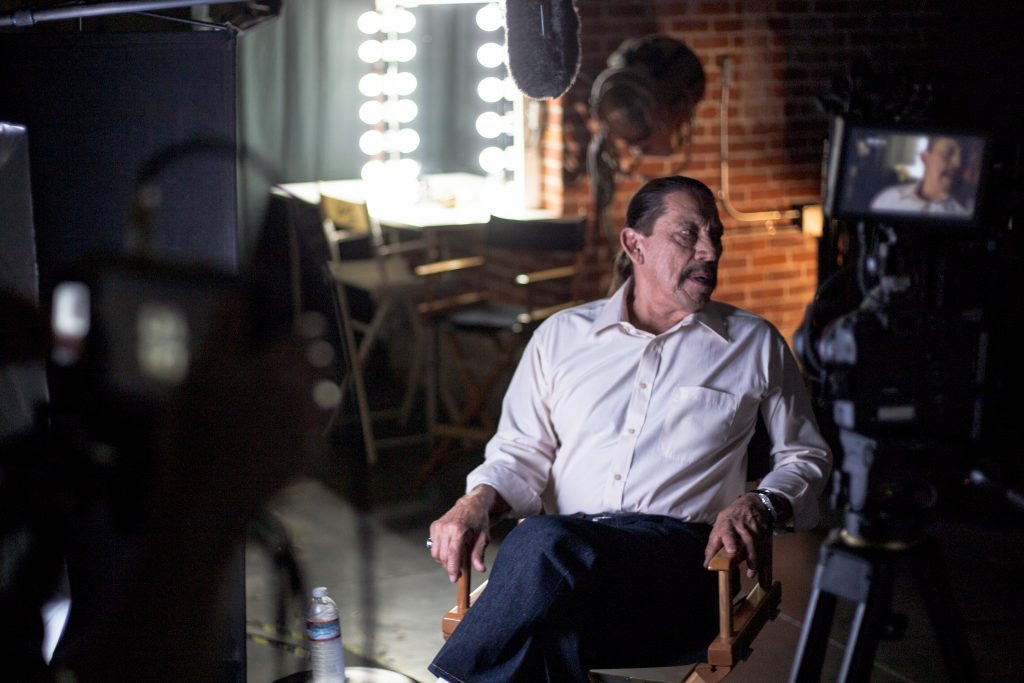
ALSO SEE: INMATE #1: THE RISE OF DANNY TREJO: WHAT DIRECTOR BRETT HARVEY HOPES WE ALL LEARN FROM HIS FILM [LRM EXCLUSIVE]
I mean, Danny’s 76 now. And he’s one of the few older adults who can walk into a school of kids and electrify them, because Danny’s like, “Look, to get through to kids, you really can’t, because they don’t really have much of an attention span. If you’re over 30, then you can’t, because you’re not cool. They’re not going to listen to you.” Danny’s a person, first of all, I’ve never seen a better public speaker in my life. I mean, it’s phenomenal. Through an unflinchingly honest telling of his life and his journey, he just knows how to reach people. And he has this magic touch with them, and people open up to him.
I don’t know anyone on planet Earth who’s helped more people. I’m not saying that Danny … and Danny would never say this, but I know thousands of people who have directly, and certainly indirectly, through someone, Danny helped directly, has turned people’s lives around, and that’s all he cares about. He likes, I think, being a celebrity, in this weird way, because it offers him an opportunity to, when he meets somebody, to be kind and make their day. That’s what he gets out of it, not the other bells and whistles.
I will say this. We will go to Coco’s, say, at 11:00 on a Friday night, back before COVID. That’s just where we went after we were working with the book. And everywhere I go with Danny, there’s 100 people waiting patiently. It doesn’t matter, he’s going to meet everybody. He’s going to take time with them. He’s going to talk to them. He’s going to ask how they’re doing. He’s going to take a picture. I’ve never seen him once not be gracious, and he thanks God for that opportunity. I think it’s really fantastic. I’m with him all the time, and I always have been. So I see him in private moments and in public moments, and he does not change.
Emmanuel Gomez: How would you say his Hollywood peers perceive him?
Donal Logue: He’s loved. There’s something about Danny that supersedes Hollywood. You know what I mean? Danny’s loved. He’s loved by kids on the corner and he’s loved by his fellow peers. He’s the kind of guy that, the biggest movie star in the world will … George Clooney will see him from across the parking lot at something, and immediately melt and start yelling, “Danny.” He just gets love. I think Craig says it in the documentary. People play tough guys. Danny is that guy. But what’s loving about Danny is, he’s so warm and embracing. It’s such a different change-up from what he was.
But everybody knows what he’s been through and he who is. He just is who he is. You can be in Asia, or in Africa, or Russia, or a small town in Canada, and everybody knows who Danny Trejo is, and he’s always got a smile. I think he’s incredibly well-loved in this community, not only in the Hollywood community but in Los Angeles. So it makes total and utter sense that when you get off a plane at LAX, you hear Danny’s voice saying, “Hello, I’m Danny Trejo. Welcome to the City of Angels, my city,” and he laughs.
It’s true. This town and Danny Trejo are kind of one in the same. And yeah, it’s great. It’s great. I just think people are really proud. He’s a shining example of if you make a decision to turn your life around, that you can, and great things can happen. And I’m not talking about movie stardom or anything. I’m just talking about the good stuff, right? Like, your family life is repaired. You have a home over your head. You know what I mean? A roof over your head and a home. Just that’s the contentment you find when you turn your life around.
How was the documentary in your view?
Emmanuel Gomez: There was a lot that I didn’t know. I mean, for me, like most people, I knew that he had a past, and he was able to embrace who he was, and turn it into his character. I did not know the amount of work that he put in before he became a star. I didn’t know he was a drug counselor before he became a movie star, and all of the things that he would do for his neighbors and things like that, during that span that you talked about.
Donal Logue: And of course, after.
Emmanuel Gomez: Right. Yes. From before and after. I think that, that’s just amazing. For me, as a Hispanic myself, too, I just really like the fact that he’s a prime example of somebody who, for whatever reason, did what he did when he was younger. But he did not let that be the excuse for why he shouldn’t move up ahead, why he shouldn’t help his peers, stay angry at the world, like so many young people do nowadays, and just turn his life around the way he did. It’s the ultimate, “Look, he did it. You could do it too.” And I think that’s really powerful.
Donal Logue: A hundred percent. We’ve learned in life that no matter what you’ve done, and not matter how far down perhaps the societal scale you’ve slid, that you will find that your experience, strength, and your hope can benefit others, right? Especially with young people and they’re confused. I mean, that’s one thing, is, Danny’s really worked hard at prison reform and actually worked with this lawyer to help get his cousin Gilbert out of jail after 38 years, to change legislation that so inmates that were sentenced to life as juveniles, have the access to parole, that they are supposed to get by law. The thing is, what we want is, is that you just keep locking up people in great numbers, in what is just an animal factory, right?
Emmanuel Gomez: Right.
Donal Logue: Where there’s so much fear and paranoia that you’re forced to resort to violence just to survive. Then those things ensure that when people get out, they have no chance. It’s so difficult to get a job and all this stuff, that they go back to what they were doing before. That’s not what society wants, right? What we want to know is that people can reform. That’s what we believe in. And that’s what we want. That’s Danny’s message, the education. And obviously, drugs and alcohol and stuff are a big part of it, because at some point, you don’t know if you’re doing crimes to support your drug habit, or you’re doing your drug habit to support your crime habit, right?
It becomes this crazy cycle. But I think what you’re saying is so important because it’s that redemption. And we believe in forgiveness. I honestly think, and I don’t think Danny does it out of guilt, but I know that Danny because a lot of times, it’s just glossed over and glamorized. Danny really felt, in looking back on his life, for the people that, the Asian lady at Far East Market, his first robbery at 14, just turning 15. His first armed robbery. There’s a lot of fear that he gave people, and he’s on this path.
He’s really been on this path for the last 50 years to make amends for it, in how much he can do to help other people. He doesn’t shy away from the facts of the past. All he can do is try and be a better person today that he was yesterday. That’s all we could ask of anybody. If everybody followed that blueprint, there would be a lot of people turning their lives around. And he’ll never stop until … he can’t do it for everybody and all this, but all we can do is what we can do in our lives, right? Whoever are contacted, or how many people we affect, etc.
That’s his mission in life, and we can’t be bitter. When we understand that we can’t blame the world for our problems, that a lot of our problems are stuff psychologically or otherwise. It’s a battle that we have to have with ourselves. You will find that great things happen after that, right? It feels like the chips are stacked against us and the world is out to get us, so screw it. Why not just keep going on the slippery slope down? But to make a decision … I’ll say this. On Cinco de Mayo in 1968, when Danny was sitting in solitary confinement and looked at the wall, that, in that moment, he made a decision to turn his life over to God and to be of help towards his fellow man.
It happened really in an instant, because he looked at this wall where someone had scrawled this epithet against God, and he said, “God, if you’re there, me, Henry and Ray will be all right. If you’re not, we’re screwed. But if you let me die with dignity, I will say your name every day and help my fellow man every day.” That we can, in a second, in a moment, make a decision to change our life, and great things will happen. That no matter how bad things are, that you think … first of all, you can always make them worse, but you can certainly make them better, starting from that moment on. And he’s proof.
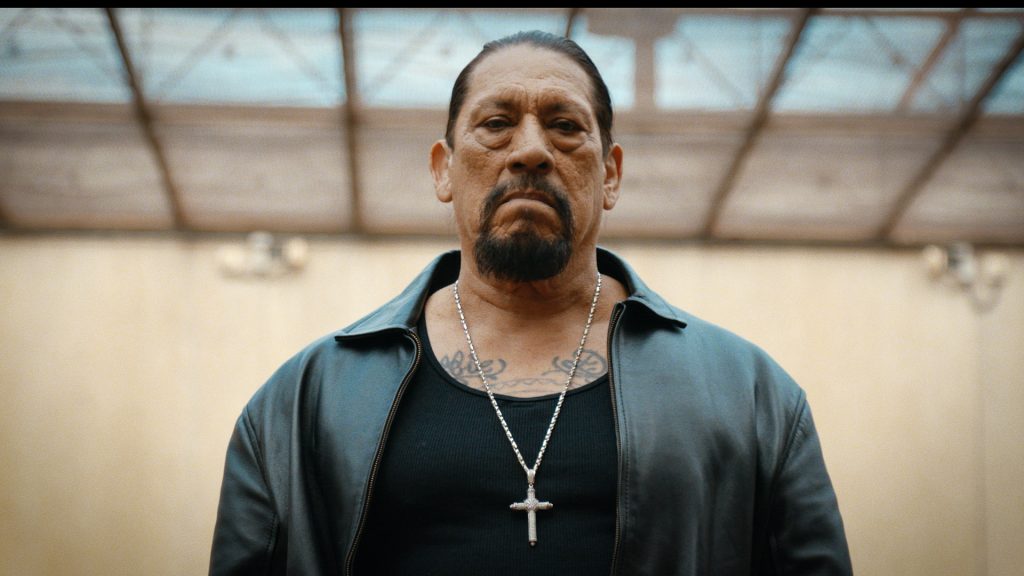
Emmanuel Gomez: Definitely. I’m going, to be honest with you. I did not expect to be kind of emotional in an interview talking about this, but your relationship Danny seems to have brought back so many positives. And that’s great that anyone can have that with somebody.
Donal Logue: Oh yeah. Yeah. I mean, so many of his great friends, Eddie Bunker and this guy George Perry, a lot of his old partners have passed away. And certainly, a lot of the guys that he came up with, and his old crime partners. A lot of Danny’s generation died from liver-related illnesses because they were intravenous drug users back in the ’60s and ’70s. So it’s a great honor to be part of circle because a lot of the great ones have gone. And I know you know this, Emmanuel, in your own life, you got to have that friend who’s just there for you no matter what.
Emmanuel Gomez: Oh yeah, definitely. Yeah, we all need that. All right. I want to thank you for your time.
Donal Logue: You’re welcome.
Emmanuel Gomez: I really appreciate it, and I wish you the best of luck in completing that book. I look forward to it.
Donal Logue: All right. Awesome. I’m super psyched for you to read it. I will say this. It gets into the nitty-gritty of the real stuff that happens in our life, which is family stuff, and family secrets, and secrets and lies, and this and that, things you fight with. But for those who love his story, it will be just the deeper dive. But I think the documentary was a fantastic one.
Emmanuel Gomez: No doubt. And the book is going to be a great compliment to even have a deeper dive and to be able to take some of those nuggets and implement them into our lives.
Donal Logue: Yeah. Thanks, man. Have a great day up there, okay?
Emmanuel Gomez: All right. Have a good one.
Universal Studios’ Inmate #1: The Rise of Danny Trejo is now available on Digital and On-Demand.
Continue the LRM Online conversation on Discord by CLICKING HERE!
—–
Have you checked out LRM Online’s official podcast feed yet The LRM Online Podcast Network? This includes our flagship podcast Los Fanboys, our premiere podcast Breaking Geek Radio: The Podcast, GeekScholars Movie News, and our morning show LRMornings. Check it out by listening below. It’s also available on all your favorite podcast apps!
Subscribe on: Apple Podcasts | Spotify | SoundCloud | Stitcher | Google Play

 FOR FANBOYS, BY FANBOYS
Have you checked out LRM Online’s official podcasts and videos on The Genreverse Podcast Network? Available on YouTube and all your favorite podcast apps, This multimedia empire includes The Daily CoG, Breaking Geek Radio: The Podcast, GeekScholars Movie News, Anime-Versal Review Podcast, and our Star Wars dedicated podcast The Cantina. Check it out by listening on all your favorite podcast apps, or watching on YouTube!
Subscribe on: Apple Podcasts | Spotify | SoundCloud | Stitcher | Google Play
FOR FANBOYS, BY FANBOYS
Have you checked out LRM Online’s official podcasts and videos on The Genreverse Podcast Network? Available on YouTube and all your favorite podcast apps, This multimedia empire includes The Daily CoG, Breaking Geek Radio: The Podcast, GeekScholars Movie News, Anime-Versal Review Podcast, and our Star Wars dedicated podcast The Cantina. Check it out by listening on all your favorite podcast apps, or watching on YouTube!
Subscribe on: Apple Podcasts | Spotify | SoundCloud | Stitcher | Google Play

